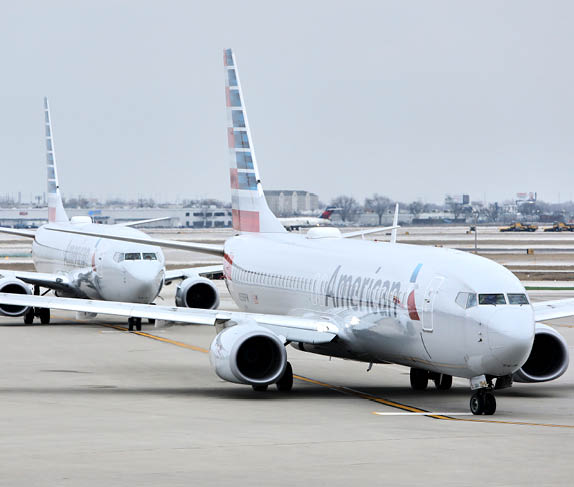Fitch-rated global aircraft lessors could see negative ratings implications from a prolonged ban on conducting business with Russia and/or secondary global macroeconomic effects resulting from the conflict, said the rating agency in a market update.
Fitch stated that the direct effects from expanded economic sanctions imposed upon Russia, including the European Commission's (EC) requirement that aircraft lessors terminate existing lease agreements with Russian airlines by March 28, should not materially pressure lessors' net margins, liquidity coverage levels or cash flows over the 12-24 month Outlook horizon. However, potential disruptions from indirect effects of the conflict on the broader aviation and airline sector outlook remain in flux and uncertain.
The rating agency notes that although aircraft lessor business and financial profiles remained relatively resilient to the severe downturn in global travel during the pandemic, the conflict is a credit negative for the overall aviation and airline sector, and the longer-term indirect macroeconomic effects on the airline industry remain to be seen, including higher fuel and oil prices, rising interest rates and inflation, and potentially lower growth and slower travel recoveries. In general, aircraft lessor ratings incorporate a degree of conservatism to account for the business model's sensitivity to exogenous shocks.
While there is significant macro-level uncertainty, the direct effects of restrictions on lessors doing business with Russian airlines can be assessed. Lessors have sufficient rating headroom and liquidity to manage sanction impacts, given relatively low exposure to Russian airlines, diverse customer bases overall and solid cash flows generated from long-term leases. As of Jan. 31, 2022, Fitch-rated lessors' exposure to Russian airlines ranged from 0% to 10% of net book value, according to Cirium.
Fitch-rated aircraft lessors are expected to fully comply with EC requirements while leveraging their scale and operational capacity to reposition aircraft. Nevertheless, the sanctions present significant logistical and operational challenges given the unique and rapidly evolving situation, meaning repossession of aircraft in Russia could prove more difficult. If airlines fail, or are barred from, complying, lessors maintain contingent insurance policies, which could potentially cover repossession losses. Lessors also often have maintenance reserves and letters of credits associated with leases, which could reduce potential losses.
Fitch forecasts lessors' operating cash flows and capitalization levels relative to stressed lease deferrals, airline defaults and increased impairments. Aircraft lessors remain focused on active liquidity management, and Fitch states that it believes issuers will have sufficient liquidity to withstand the potential near-term impact of lease terminations on collections, utilizations and cash flows and losses from unrecovered aircraft. Higher oil prices or a sustained oil shock, which can be a material risk for airlines, could in turn pressure aircraft lessor metrics, but may also lead to increased demand for lessors' more fuel-efficient current generation aircraft and favorable orderbook positions with manufacturers.
Lower residual values could result in incremental impairment charges and higher leverage if repossessions are protracted or if lessors are unable to recover aircraft. Although global air traffic has recovered meaningfully, with aircraft demand, lease rates and metal values up from pandemic-driven lows, an influx of returned aircraft from Russia could reverse these trends, particularly on less fuel-efficient, current-technology widebody aircraft.
Fitch-rated lessor exposure to Russian airlines averaged 75% narrowbody aircraft, 12% widebody aircraft and 12% freighters, according to Cirium. Based on 3Q21 financials, lessors had the capacity to withstand fleet impairments in the range of 2%-8% of fleet net book value before exceeding Fitch's 3.0x gross debt to tangible equity downgrade trigger, with Dubai Aerospace ('BBB-'/Stable) having the least amount of headroom.

